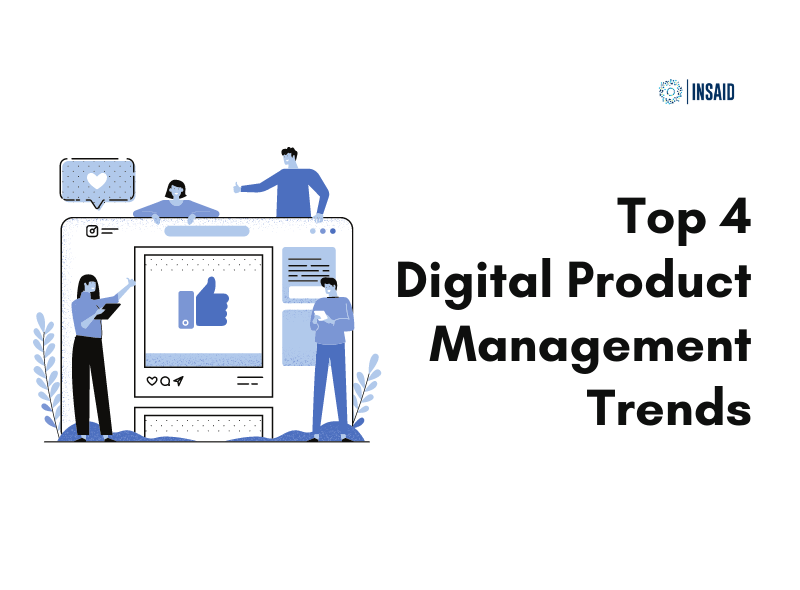We live in a digital economy today! From e-commerce platforms such as Amazon and Flipkart to online health consultations at Practo to social commerce websites such as Facebook and Instagram, we are surrounded by digital brands changing our lives.
Since brands have gone digital; so has the world of Product Management. In the last few years, the industry has witnessed an increased demand for Digital Product Managers.
A conventional Product Manager manages everything about a product – from ideation to launch. Similarly, a Digital Product Manager manages everything for a digital product like a mini-CEO.
To know more about a Digital Product Manager and the key trends driving the future of Product Management, continue reading.
Top 4 Digital Product Management Trends in 2022
1. Data Data Everywhere
Data is the new oil and the rise of digital brands is a byproduct of it. Every second huge amount of data is being produced across channels. For brands to grow and develop products that are loved by all, it is important to use data to its full potential. This is where efficient Product Managers come in.
Product Managers are responsible for conducting market research and analysing trends and data patterns to understand consumer pain points, competition, and chart out product trajectories.
2. Building a Product Long-Term & Short-Term
Digital products are not only about a one-time big launch. Rather, there are several short-term and long-term developments and goals that need to be achieved for building a successful product.
Take for instance a messaging app like WhatsApp. Every now and then, a new feature and update are launched in WhatsApp to enhance the user experience.
Digital Product Managers have to build long-term roadmaps for product success and simultaneously focus on short-term goals that improve the product each passing day!
 Pin
Pin3. Evolving World of Digital Products
With changing user behavior, the demand for digital products has evolved rapidly. Digital Products are no longer limited to leisure and social interactions. However, today aim at solving user pain points.
For example, take Instagram. The social media platform has now evolved into a social commerce platform that allows people to sell and buy products online.
Digital Product Managers are constantly involved in identifying such industry trends and developing products that cater to the evolving needs of the user.
Further, Product Managers are responsible for working closely with engineers, developers, and designers to upgrade key product features such as:
- User Interface
- UI/UX Design
- Product Navigation
- Technology Upgrades
- Cost-Effectiveness
4. All About “IT”
With advancements in technology, the world of digital products has received a big boost. Eventually, the demand for Digital Product Managers has increased too!
Digital Product Managers are playing a crucial role in technology-dependent products such as:
- Software as a Service (SaaS) products
- Mobile Applications
- Software-augmented hardware solutions based on Internet of Things (IoT)
- Internal IT solutions
Digital Product Managers are responsible for meeting the needs and expectations of customers and generating the right revenues too.
So, there you have it. These were the top trends driving the future of Product Management. If you want to know more about building a career in Product Management, check out our top certification courses here.






